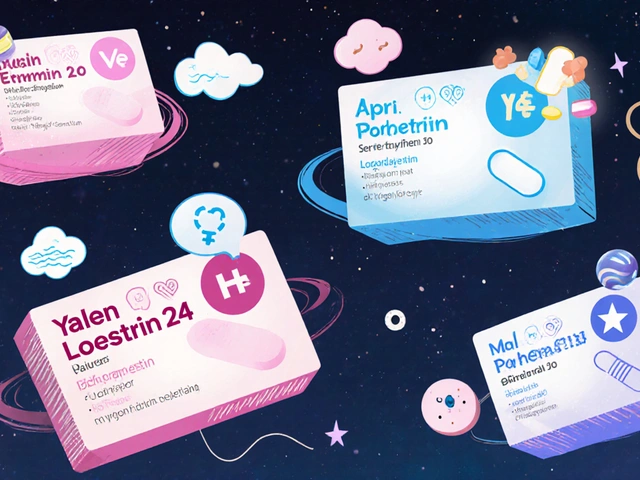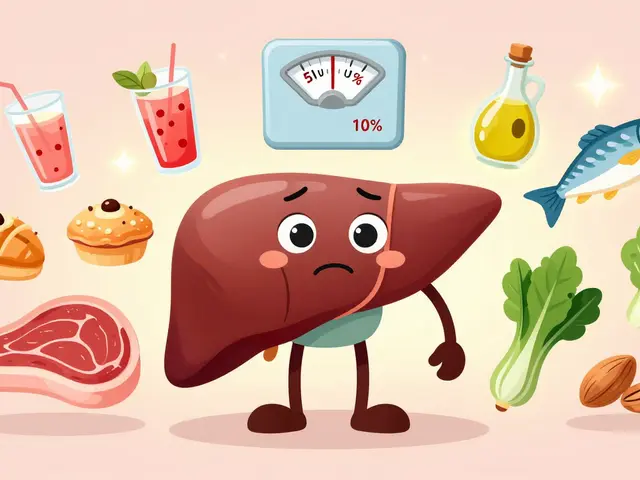Morning Sickness Management & Baby Prep Planner
Symptom Tracker
Recommended Actions
Newborn Prep Checklist
Symptom-Based Task Suggestions
Based on your current nausea level, here's what to prioritize:
- When nausea is mild (<3): Focus on organizing baby gear and creating checklists
- When nausea is moderate (3-6): Complete 1-2 small tasks with partner support
- When nausea is severe (>6): Only complete essential tasks with help
Support Network Planner
Partner
Share nursery chores, grocery runs, and doctor appointments.
Family/Friends
Request meal delivery or baby gear assembly on tough days.
Healthcare Providers
Get personalized guidance on diet, medication, and symptom monitoring.
Communication Plan
Set up a simple system to keep everyone informed:
- Group chat for quick updates
- Shared calendar for appointments
- Weekly check-in at 4pm
Understanding Morning Sickness
When you first learn you’re pregnant, the wave of nausea that hits most in the first trimester can feel like an unwelcome alarm clock. Morning sickness is a common condition during early pregnancy that causes nausea and sometimes vomiting, typically lasting from weeks 4 to 12. It’s driven by a cocktail of hormones-especially human chorionic gonadotropin (hCG) and estrogen-plus a heightened sense of smell.
Most people assume the symptoms fade after the first trimester, and that’s true for about 70% of pregnancies. For the rest, the discomfort can stretch into the second trimester, affecting daily routines and even sleep.
How Morning Sickness Impacts Early Parenting Plans
Preparing for a newborn involves setting up the nursery, buying gear, and learning baby‑care basics. When you’re battling nausea, a few practical things can slip:
- Choosing paint colors or arranging furniture may feel overwhelming.
- Sticking to grocery lists becomes harder as food aversions change daily.
- Energy levels drop, making it tough to attend prenatal classes.
Recognizing these hurdles early lets you build a support system that cushions the impact.
Key Strategies to Tame Nausea and Keep Parenting Prep on Track
- Stay hydrated in small sips. Dehydration intensifies nausea. Aim for 8‑10 glasses a day, but sip a few ounces every 15 minutes rather than gulping.
- Eat protein‑rich snacks every two hours. A handful of almonds, Greek yogurt, or a boiled egg can steady blood sugar and calm the stomach.
- Shift to bland, cold foods. Ice‑cold soups, smoothies, or plain crackers tend to be easier on a sensitive palate.
- Use ginger in various forms. Fresh ginger tea, candied ginger, or ginger chews provide a natural anti‑nausea boost.
- Consider acupressure wrist bands. They apply pressure to the P6 point, which research from the University of Sydney shows can reduce vomiting episodes for up to 70% of users.
- Talk to your midwife about safe anti‑emetic medication. Ondansetron is a prescription drug approved for severe nausea in pregnancy when other options fail. Always discuss dosage and timing.

Building a Parenting Support Network
Having allies can turn a rough trimester into a manageable sprint. Identify three pillars:
- Partner or spouse. Share the load of nursery chores, grocery runs, and doctor appointments.
- Family or close friends. Ask them to bring over meals or help with baby‑gear assembly on days you feel weak.
- Healthcare providers. Your midwife offers personalized guidance on diet, medication, and symptom monitoring can flag warning signs early.
Set up a simple communication plan-group chat, shared calendar, or weekly check‑in-to keep everyone informed of your needs.
Integrating Newborn Preparation with Symptom Management
Here’s a week‑by‑week cheat sheet that aligns typical morning‑sickness milestones with newborn‑prep tasks.
| Week of Pregnancy | Nausea‑Focus Action | Parenting‑Prep Action |
|---|---|---|
| 5‑6 | Start ginger tea after breakfast. | Choose a calming color palette for the nursery. |
| 7‑8 | Set a hydration reminder on your phone. | Create a baby‑gear inventory checklist. |
| 9‑10 | Try acupressure wrist bands before meals. | Schedule a virtual prenatal class (recorded for later). |
| 11‑12 | Consult your midwife about ondansetron if vomiting persists. | Order a crib and set it up with help. |
| 13‑14 | Transition to smaller, more frequent meals. | Finish stroller assembly and do a test run in the hallway. |
Mind‑Body Approaches to Keep You Grounded
Stress can worsen nausea, so gentle mental‑health practices help both you and the baby.
- Breathing exercises. The 4‑7‑8 technique (inhale 4 seconds, hold 7, exhale 8) calms the vagus nerve.
- Prenatal yoga. Slow, low‑impact poses improve digestion and circulation. Many studios in Perth offer morning‑sickness‑friendly classes.
- Journaling. Logging food triggers and symptom patterns creates a personal reference for future pregnancies.

When to Seek Medical Help
Most morning sickness is harmless, but certain signs warrant a call to your provider:
- Inability to keep any liquids down for 24 hours.
- Weight loss exceeding 5% of pre‑pregnancy weight.
- Severe abdominal pain or fever.
- Persistent vomiting after the 20‑week mark.
These could signal hyperemesis gravidarum, a more serious condition that may require IV fluids or hospitalization.
Preparing for Life After Morning Sickness
Once the nausea eases, you’ll have more energy to focus on the newborn. Keep a few habits that helped during the tough weeks:
- Continue drinking water in small, frequent sips.
- Maintain a protein‑rich snack routine-use it for night‑feeds or when you’re sleep‑deprived.
- Keep the support‑network schedule even after the baby arrives; a quick call can lift the mood on exhausting days.
Remember, the transition from pregnancy to parenthood is a marathon, not a sprint. The coping tools you build now become a solid foundation for the sleepless nights ahead.
Frequently Asked Questions
Can I exercise while experiencing morning sickness?
Yes, gentle activities like walking, prenatal yoga, or swimming can boost circulation and reduce nausea. Listen to your body-if you feel dizzy, stop and hydrate.
Are there safe over‑the‑counter remedies?
Vitamin B6 (pyridoxine) at 10‑25mg three times daily is widely recommended. Pair it with doxylamine (found in some sleep aids) only under medical supervision.
How can I protect my newborn gear from my constant trips to the bathroom?
Place a small, easy‑to‑clean mat near the crib and keep cleaning wipes handy. Enlist a partner to wipe down surfaces after each episode.
Is it normal to feel anxious about the baby while I’m nauseous?
Absolutely. Hormonal shifts amplify emotions. Talking to a counselor or joining a pregnancy support group can provide reassurance.
When should I consider prescription medication?
If lifestyle tweaks don’t reduce vomiting to fewer than three times a day, bring it up with your midwife. Medications like ondansetron are safe after the first trimester under doctor guidance.






Anna-Lisa Hagley
13 October, 2025 . 16:30 PM
The planner's emphasis on ginger and wrist bands reflects a conventional approach, yet it neglects the psychological burden of chronic nausea. A more rigorous assessment of individual triggers would elevate the utility of such tools.
A Walton Smith
15 October, 2025 . 05:46 AM
Sounds useful but I doubt anyone will actually use it.
Theunis Oliphant
16 October, 2025 . 20:40 PM
Behold, the noble pursuit of preparing a cradle while the body rebels against its own chemistry. One must rise above such trivial discomforts and commit to the sacred duty of parenthood, lest the very foundations of society crumble under the weight of neglect.
India Digerida Para Occidente
18 October, 2025 . 12:56 PM
A robust support network acts as a lifeline when nausea threatens to derail your preparations. Enlist your partner for heavy lifting, ask family for meals, and keep healthcare providers in the loop; their collective strength will anchor you through the storm.
siddharth singh
20 October, 2025 . 03:50 AM
When it comes to handling morning sickness while simultaneously preparing for a newborn, a systematic approach is essential.
First, establish a hydration schedule that breaks down the daily eight‑to‑ten glasses into manageable sips every fifteen minutes.
Second, integrate protein‑rich snacks such as almonds, Greek yogurt, or boiled eggs into your routine every two hours to stabilize blood sugar.
Third, keep a small stash of ginger-whether in tea, chews, or capsules-within arm’s reach, as studies consistently show its anti‑nausea efficacy.
Fourth, consider wearing acupressure wrist bands before meals; the P6 pressure point has been validated by multiple clinical trials.
Fifth, coordinate with your partner to delegate any physically demanding tasks, like assembling the crib, to times when your nausea subsides.
Sixth, create a simplified checklist that pairs each newborn preparation step with a corresponding nausea mitigation strategy.
Seventh, communicate your daily status to your support network via a group chat, so assistance can be mobilized proactively.
Eighth, monitor your weight and urine output; a loss of more than five percent of pre‑pregnancy weight or inability to retain fluids warrants medical attention.
Ninth, schedule a mid‑trimester review with your midwife to discuss the possibility of prescription anti‑emetics if lifestyle modifications prove insufficient.
Tenth, keep a journal of food triggers and symptom patterns; this data becomes invaluable for tailoring dietary choices.
Eleventh, practice gentle breathing exercises, such as the 4‑7‑8 technique, to reduce vagal overstimulation.
Twelfth, allocate short, frequent rest periods throughout the day to combat fatigue, which can exacerbate nausea.
Thirteenth, avoid strong odors and opt for cold, bland foods that are less likely to provoke the gag reflex.
Fourteenth, stay informed about the safe use of vitamin B6 and doxylamine under medical guidance.
Finally, remember that each of these steps is a building block toward a smoother transition into parenthood, and consistency will yield cumulative benefits.
Angela Green
21 October, 2025 . 18:43 PM
Excellent layout! The use of bullet points streamlines the information, and the consistent verb tense enhances readability. However, consider replacing “have” with “has” in the sentence about “the baby gear assembly” to maintain subject‑verb agreement.
April Malley
23 October, 2025 . 09:36 AM
I love how the checklist integrates both nausea management and newborn prep, it really ties the two worlds together, and the color‑coding makes it visually appealing, plus the reminder to sip water every fifteen minutes is a lifesaver, especially when the morning waves hit hard.
scott bradshaw
25 October, 2025 . 00:30 AM
Great, another to‑do list for the queasy.
Crystal Price
26 October, 2025 . 14:23 PM
Oh, the tragedy of a mother battling bile while choosing paint shades – a modern myth of suffering that tests the very essence of perseverance.
Murhari Patil
28 October, 2025 . 05:16 AM
They don’t tell you that the water industry profits from your constant trips to the bathroom.
kevin joyce
29 October, 2025 . 20:10 PM
From a neuroendocrine perspective, the coupling of hCG surge and vestibular sensitivity creates a feedback loop that not only amplifies emesis but also modulates affective circuits, thereby intertwining physiological distress with anticipatory anxiety about parental competence.
michael henrique
31 October, 2025 . 11:03 AM
If you truly care about this nation, you will prioritize your health to ensure a strong future generation; disregard of medical advice is a betrayal of civic duty.